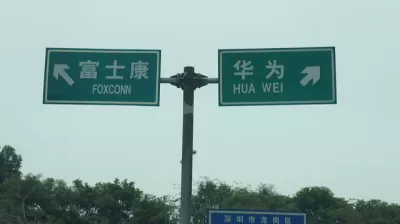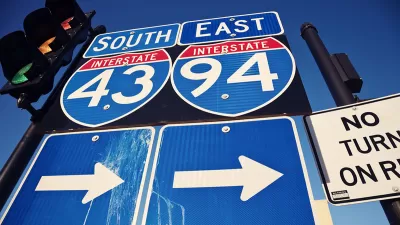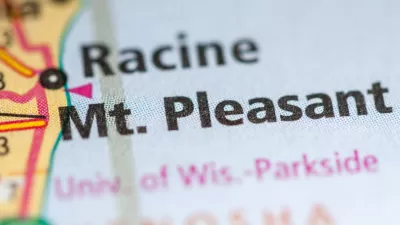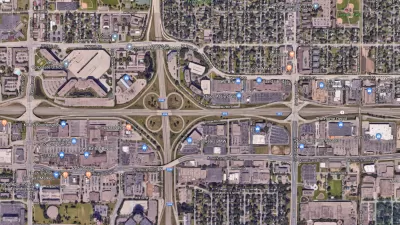News of the details of the negotiation between Taiwan-based Foxconn and the state of Wisconsin have revealed ideas about transportation planning that are either ambitious or delusional, depending on your opinion.

"Foxconn Technology Group asked for an autonomous vehicle lane to be included in the expansion of Interstate 94 North-South in Racine County," reports Arthur Thomas.
The Foxconn deal made national news as Wisconsin Governor Scott Walker touted the company's decision to locate in the state as evidence of his administration's success in economic development. President Trump also chimed in, telling residents of upstate New York to move after Oneida County failed to land the deal.
"The special session legislation setting up Foxconn’s $3 billion in tax credits and breaks also authorized $252.4 million in borrowing to complete the expansion of I-94 in Racine County, but that money cannot be spent without an award of federal funding for the project," adds Thomas.
The article includes soundbites from Milwaukee Association of Commerce president Tim Sheehy, Wisconsin Department of Transportation spokesperson Michael Pyritz, and Waukesha County Board Chair Paul Decker. Decker, for instance, argues that the state will have to rethink its approach to transportation planning and start thinking about funding on a regional level, rather than a local level, to make large projects like I-94 a reality.
Hat tip to Kim Slowey for sharing the article.
FULL STORY: Foxconn wants autonomous vehicle lane as part of I-94 expansion

Planetizen Federal Action Tracker
A weekly monitor of how Trump’s orders and actions are impacting planners and planning in America.

Maui's Vacation Rental Debate Turns Ugly
Verbal attacks, misinformation campaigns and fistfights plague a high-stakes debate to convert thousands of vacation rentals into long-term housing.

San Francisco Suspends Traffic Calming Amidst Record Deaths
Citing “a challenging fiscal landscape,” the city will cease the program on the heels of 42 traffic deaths, including 24 pedestrians.

Amtrak Rolls Out New Orleans to Alabama “Mardi Gras” Train
The new service will operate morning and evening departures between Mobile and New Orleans.

The Subversive Car-Free Guide to Trump's Great American Road Trip
Car-free ways to access Chicagoland’s best tourist attractions.

San Antonio and Austin are Fusing Into one Massive Megaregion
The region spanning the two central Texas cities is growing fast, posing challenges for local infrastructure and water supplies.
Urban Design for Planners 1: Software Tools
This six-course series explores essential urban design concepts using open source software and equips planners with the tools they need to participate fully in the urban design process.
Planning for Universal Design
Learn the tools for implementing Universal Design in planning regulations.
Heyer Gruel & Associates PA
JM Goldson LLC
Custer County Colorado
City of Camden Redevelopment Agency
City of Astoria
Transportation Research & Education Center (TREC) at Portland State University
Jefferson Parish Government
Camden Redevelopment Agency
City of Claremont





























